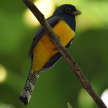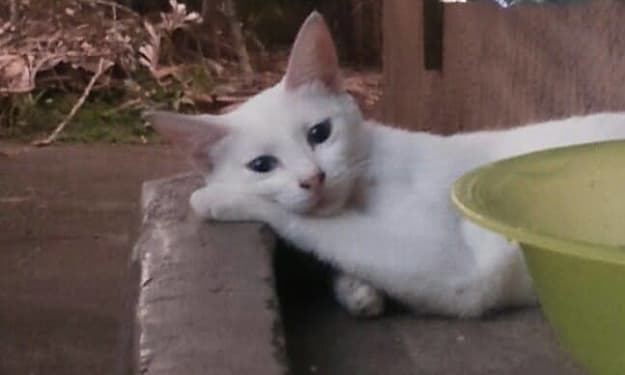
On a broad, planetary scope, birds face a variety of threats, such as climate change, habitat deforestation, and degradation and other human impacts, such as the impact of pesticides. Since many birds migrate long distances, conservation efforts become more difficult. For instance many Cliff Swallows summer in North America (the neoartic) and winter in South America (the neotropic) realm. Therefore the diversity of ecosystems that need protection for the sake of their survival are great.
Habitat Loss
Habitat loss is incredibly destructive. In North America, much of our habitat that was once protected, is now at risk, due in part to the disbanding of the Migratory Bird Treaty Act. In South and Central America, pressure to increase the GPD, and to modernize has also destroyed many invaluable ecological niches. In the case of birds, habitat loss often doesn't immediately cause extinction, but instead causes a wane in the number of mating pairs, defending territory and having viable offspring (3). Many birds have higher levels of stress hormones, and become "wanderers," which don't have high chances of survival due to low resource availability.
Climate Change
Climate change is predicted to cause the extinction of up to 900 species of tropical birds in the next century. While one might intuitively think that the expansion of the tropics might result in the success of tropical birds species, this is simply not the case. Climate change is going to continue to disrupt a lot of ecosystems, and many scientific models demonstrate the severity of fires, and ecological disasters. A lot of birds simply won't make it if things continue on their current trajectory.
Pesticides
After Rachel Carson wrote her seminal work on DDT and the threats our environment faces, many people took heed, and stopped using DDT in North America. Unfortunately, in parts of Central and South America, DDT is still used to this day. Neonicitinoids, which are more modern pesticide, are also harmful to birds, though more subtly. Rather then thinning avian eggshells, they can cause confusion, and can effect their neurobiology.
Other Threats
Cats, wind farms, and tall buildings impact birds survival rates as well, especially migratory birds. Cats slaughter birds in the millions. Wind farms kill millions of birds. Finally birds migrate at night, relying on celestial guides, and too much city light can cause them to fly straight into windows, resulting in more bird deaths.
Conservation
One of the arguments put forth by Bridget Strutchbury, in her book The Silence of the Songbirds is that shade coffee could be a solution to our habitat loss crisis in central and South America. Shade coffee is grown under trees, and fosters more biodiversity in the area. The trees allow the birds to nest, and forage and provides sanctuary. A similar idea which was enacted by the Audubon Society, is that backyards in large cities, such as Portland can be set aside as "bird sanctuaries." Cats are ruthless predators and should be kept in doors or in "catios" to prevent the slaughter of songbirds. Wind farms can slaughter a lot of birds, but there are simply ways of protecting birds from flying into them that are low-budget. Also, putting tiny dots on buildings has lowered bird kill in cities. Doing small things will likely help save certain species from extinction, and any effort is important. Finally climate change is a huge global threat, that is imminent. It is important to continue to work on reducing carbon footprint, if not only to save birds, but to save generations after this.






Comments
There are no comments for this story
Be the first to respond and start the conversation.